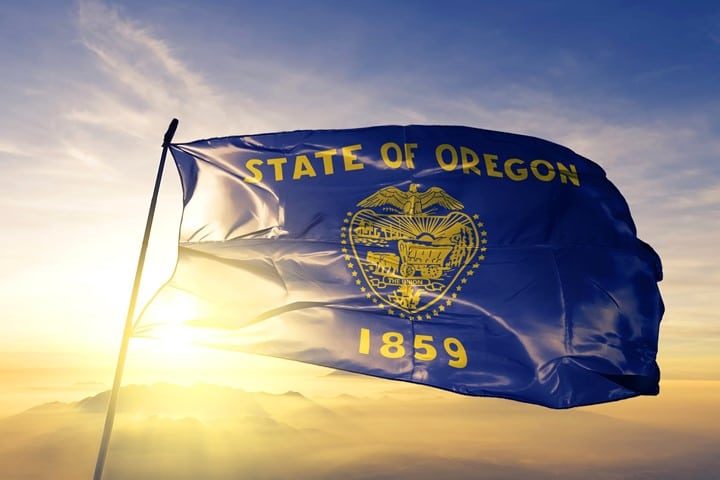
Oregon removed lyrics that social justice activists considered racist from its state anthem, and replaced them with more inclusive verses.
State lawmakers passed a resolution to change some words of “Oregon, My Oregon” on Monday after years of activists pushing for some modern edits to the tune, the Oregonian reported.
Oregon House Concurrent Resolution 11 modifies some of the lyrics, while keeping the same music of “Oregon, My Oregon,” to reflect the “significant cultural, historical, economic and societal evolution in Oregon” since the state song was adopted in 1927.
Lawmakers also state that the changes were needed due to “an active and ongoing national movement to secure truly equal treatment for peoples of all racial and ethnic backgrounds.” Because “black and Chinese people suffered from de jure exclusion in the early decades of Oregon’s statehood,” their musicians could not take part in creating the state song. “Modernization” of the anthem may resolve this injustice, it is believed.
The change replaces the first verse of the song, which referred to Oregon as “conquered and held by free men; fairest and the best,” with new lyrics emphasizing Oregon’s natural beauty and “rolling rivers.”
The original version was, “Land of the empire builders/ Land of the golden west/ Conquered and held by free men/ Fairest and the best.”
In its place is, “Land of majestic mountains/ land of the Great Northwest/ Forests and rolling rivers/ Grandest and the best.”
And instead of a second verse lyric that said, “Blest by the blood of martyrs,” the new version gets “Blessed by the love of freedom.”
Amy Shapiro, a former music teacher who spearheaded the push for new words, has said she hesitated to sing the song with her students, the Oregonian said.
Shapiro called the changes small but “profound” in testimony about the change. “Outdated, misleading and offensive words glorifying oppression and murder are replaced with inspiring words glorifying Oregon’s natural beauty — majestic mountains, forests and rivers — as well as our love of freedom,” she said.
Shapiro also believes that “This is something we can do right now to make life better in Oregon.”
Art activist Crystal Akins, who helped launch the Oregon State Song Contest, said that “In the 1920s, not one person from the BIPOC [Black, Indigenous and People of Color] community was allowed to submit songs and they weren’t able to vote on the song.” At the time the song was written, Oregon was a “whites only” state, with exclusionary laws. “This really is an opportunity to educate yourself,” Akins advised.
The Oregon Historic Society insisted on changes to the state song as well, arguing the history is not settled.
“It’s part of the issues going on with Confederate statues and changing names of schools or things like that. Anytime people are talking about history, it’s a good thing. It shows that history is relevant and important,” says Kerry Tymchuk, executive director of the Oregon Historical Society. “But once things are named or created, are they supposed to be that way forever? I mean, I don’t think so. History changes.” Tymchuk did not specify how historic facts — events that actually happened in the past — may be fluid.
Reportedly, the Beaver State’s lawmakers have been tossing around the idea of changing the song for more than a decade, with no success. State Representative Sheri Schouten (D) first introduced a bill to modify the lyrics back in 2017 but ran into opposition from traditionalists in the legislature. When Schouten reintroduced the proposal in the legislature in January, she said that this time, “This bill will move.”
“The BIPOC caucus is on board,” she says. “So is the state director of diversity, equity, and inclusion. I am going to introduce it at the very start of the session. People can quibble about whether this is racist or not, but if you have a lot of people of color who say it is offensive, that is all I need to change it.”
The bill was sponsored by Representative Andrea Salinas (D), who said, “Some of its [the anthem’s] lyrics are clearly rooted in white supremacist sentiment, with references to colonialism and slavery.”
Along with an increasing number of American national symbols, the leftist politicians and activists has begun to wage a war on “The Star-Spangled Banner” and its composer, Francis Scott Key, calling it racist, pro-slavery, white supremacist, and anti-black.
Representative Cedric Richmond (D-La.), chairman of the Congressional Black Caucus, launched a petition aiming to change the United States’ national anthem from “The Star-Spangled Banner” — which, according to Richmond, “contains racism, elitism and even sexism” — to “America the Beautiful.”



